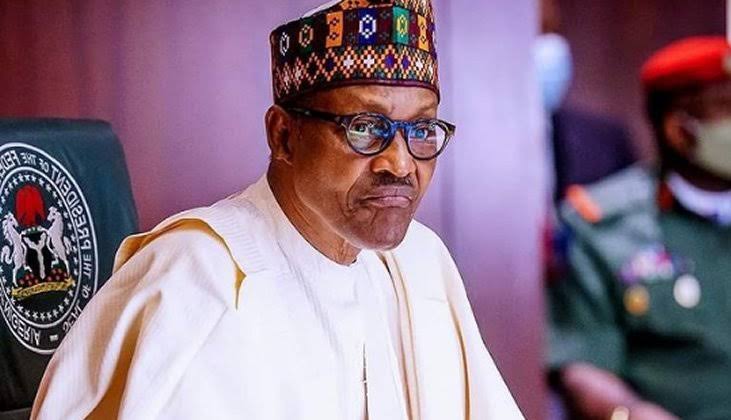Africa
A Restless Republic -By Kene Obiezu
But the cheers erupting over Buhari’s death, especially on social media, also show that in Nigeria, even the dead do not find rest. There is a restlessness that permeates the country at the moment. At all levels of society, Nigerians live from one day to the next in a kind of anxiety that suffocates. This kind of anxiety breeds bitterness, rancor, and the kind of discontent that congeals into hate. It is clear that Nigerians need healing if the country is to survive the turbulent times.May the living and the dead find rest and learn to live in peace,love and unity

On Sunday, July 13, 2025, Muhammadu Buhari, a former Nigerian president, died in a London hospital. As expected, immediately news of his death broke, and a maelstrom of reactions was set off across the country, including on social media. Many have expressed grief at the passing of the man who was Nigeria’s president most recently between 2015 and 2023. A lifetime ago, he was also a military president of Nigeria.
Death usually provokes numerous reactions and questions. With Buhari’s death, it has been no different. When he improbably came into office in 2015, many Nigerians expected that the country was in for vital shock therapy. Fatefully and historically, Buhari had at his disposal all the tools he needed to revamp a slumping nation. He was the product of a historic victory that ended sixteen years of PDP toxic misrule and as of the time he came in, Nigerians were ready to do what it takes. But as usual, they needed someone to lead from the front.
With his military background, carefully cultivated public image as an austere public officer who had a knack for discipline, many Nigerians looked up to Buhari. As he campaigned for office, Buhari had also promised to vanquish corruption.
Once in office, however, signs of early promise soon gave way to disbelief, then despair and disillusion. Despite an early crack at keeping his campaign promises, Buhari soon showed himself unable to resist the familiar Nigerian affliction of complacency, complicity, corruption, and crudeness.
Old, fatal patterns soon fell familiarity into place as Nigerians, bewildered and bemused, lamented the fact that they had missed it once again after sixteen years of PDP catastrophe. However, despite the outcry across the country, things didn’t get any better or even appear to do so. Instead, under Buhari, they got progressively worse.Insecurity, which was just blossoming as at the time Goodluck Jonathan was leaving office, became a bludgeon under Buhari, battering Nigerians into terrified submission to non-state actors.
Under a man who was once military president of the country, blood also flowed freely, none more so than at the Lekki Toll Gate on 20th October 2020, when unarmed, peaceful protesters were mowed down in coldblood by agents of state.
Buhari’s death has drawn an unmistakable outpouring of cheers from some Nigerians. Indeed, it is a mark of just how divisive the former president was that some Nigerians have not bothered to hide their glee at his passing.
Suddenly, in the face of the passing of another man whose actions had grave consequences for Nigerians, every aphorism about not speaking ill of the dead has been stretched into irrelevance.
There is a lesson for Nigerian leaders in all of it: someday, certain death will quietly call in despite status. When all lies cold, still, and stiff, only the legacy left will find its voice.
But the cheers erupting over Buhari’s death, especially on social media, also show that in Nigeria, even the dead do not find rest. There is a restlessness that permeates the country at the moment. At all levels of society, Nigerians live from one day to the next in a kind of anxiety that suffocates. This kind of anxiety breeds bitterness, rancor, and the kind of discontent that congeals into hate. It is clear that Nigerians need healing if the country is to survive the turbulent times.May the living and the dead find rest and learn to live in peace,love and unity
Kene Obiezu,
keneobiezu@gmail.com
























